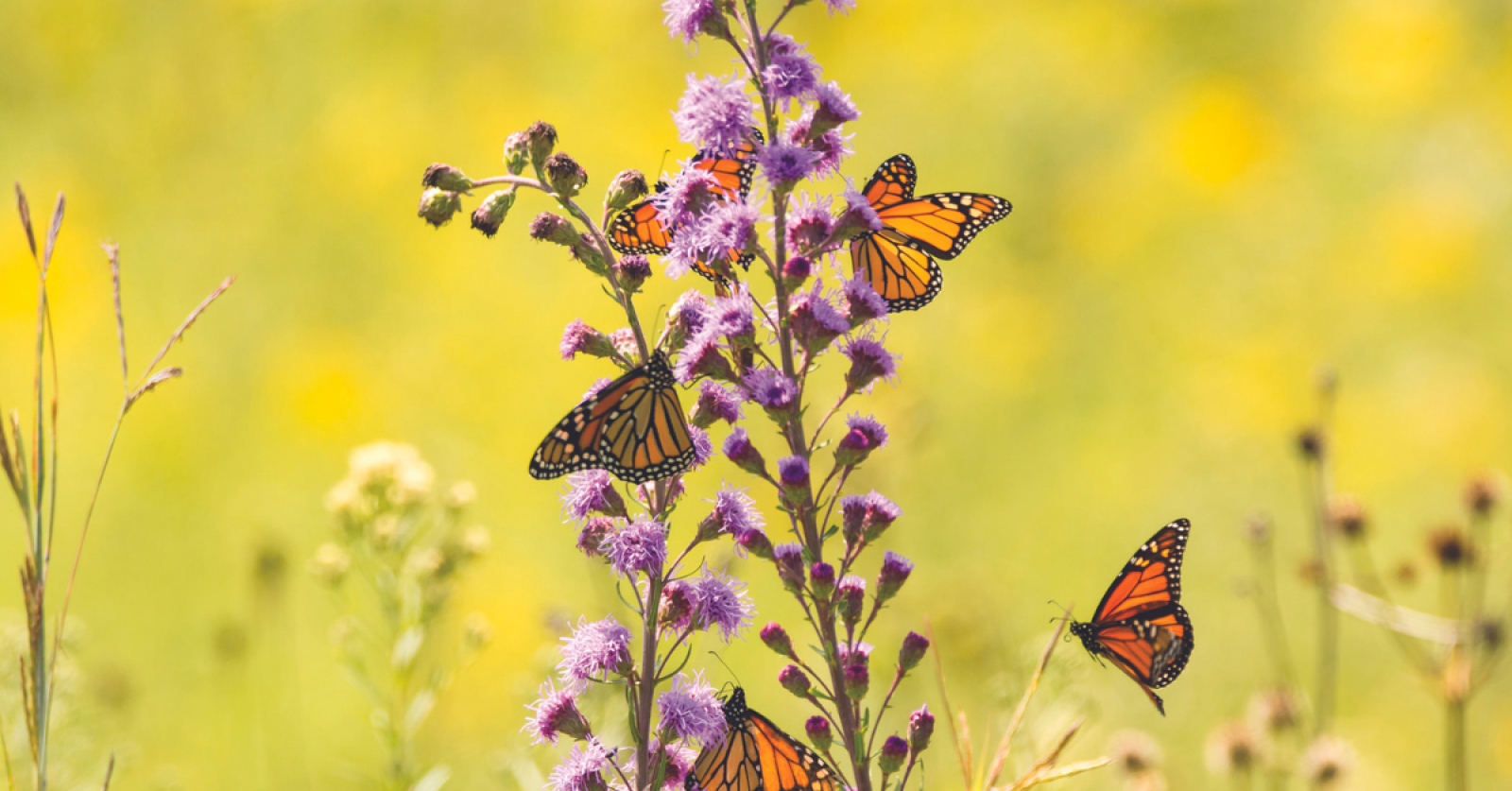February 14, 2024

UBC study delves into pollinator distraction phenomenon
A virtual study conducted by UBC Okanagan researchers Drs. Rebecca Tyson and Bruno Carturan, both with the Irving K. Barber Faculty of Science, has shed new light on the effects of pollinator gardens on neighbouring crops.
Planting wildflower patches near crop fields is seen by many as an effective strategy to support both the abundance and diversity of pollinators, but field studies have shown contradictory results. A key reason for that, according to Dr. Carturan, is that pollinators can become distracted by the gardens and could actually result in less pollination of the crop the gardens are intended to support.
To explore this idea, the researchers created a study based on blueberry crops and bumble bees — using mathematical modelling to vary the size of the crop area, the size of the planned garden relative to the crop and the relative nutritional quality and bloom time of both the crops and the pollinator garden flowers.
The net result of those simulations determined that providing highly nutritious wildflower resources before the crop blooms can more than double the crop yield. Conversely, providing wildflower resources at the same time as crop bloom can reduce the yield by up to 50 per cent.